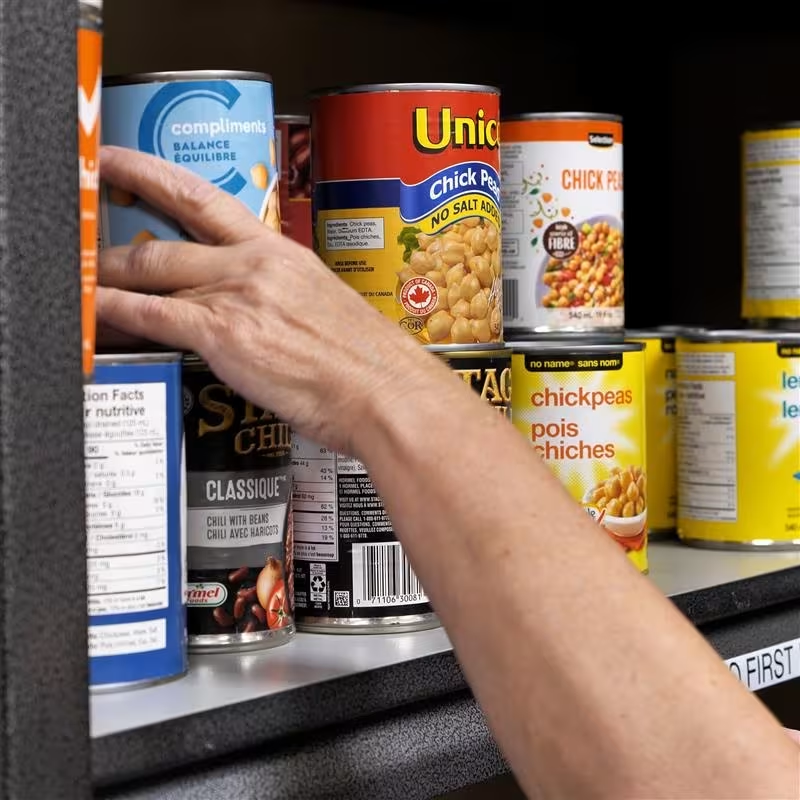Myths and misconceptions on food bank use in the province are acting as barriers to meaningful social policy change.
Food bank use in Ontario passed a grim milestone last year. Over 1 million people in the province needed to turn to a food bank to get by. The rapid increase in the need for food banks has catapulted the issue of food insecurity into the spotlight. This has spurred widespread conversations about who is using food banks and why.
At Feed Ontario, we have seen that there are often misconceptions about these topics. Many people understandably have questions about why so many, in a wealthy province like Ontario, can’t make ends meet. It is often thought that people need to turn to food banks for help because of poor personal decision making. In reality, it is a combination of complex systemic factors, unique circumstances, and poor public policy decisions that make it difficult for people to get back on their feet after hitting a rough patch.
Myth: Individual choices lead to food bank use.
There are many common misconceptions about individual circumstances and choices leading to food bank use. For example, the idea that people “abuse” the food bank network to take more than they need. Another common misconception is that those who turn to food banks “just need to get a job.” But these myths, along with the idea that social assistance provides adequate support for people during difficult financial periods can lead to a lack of appetite for political change. Afterall, if the problems of food insecurity are an individual’s fault, then why would policy solutions matter?
Reality: The rise in food bank use has been caused by decades of poor public policies and disinvestments in our social safety net.
The truth many aren’t aware of is the factors driving increased food bank use are more widespread than any one person’s individual choices. The rising costs of housing means nearly a quarter of food bank visitors have housing costs that exceed their monthly income. 1 in 4 food bank visitors is employed, showing that wages are not keeping pace with today’s expenses. This also show that quality jobs are being lost in the province. And if someone experiences the hardship of not being able to work or being laid off, our social assistance programs do not provide enough income to survive on. Ontario Works rates fall 66% below the poverty line, and the Ontario Disability Support Program falls 53% short.
What this data can tell us is that a dollar can only be stretched so far. When incomes are inadequate and housing costs consume most of a person’s monthly funds, people are forced to seek out other options to get through the month. Many people only turn to a food bank as a last resort. They often seek help from family and friends, take on debt, or delay bill payments. Food banks are frequently the last line of defense before homelessness. A study out of McMaster University showed nearly half of food bank visitors would likely be homeless without the support of a food bank.
We have the power to bring about real social policy solutions.
If things in the province don’t change, food bank use will only continue to rise over the next year. However, the future is not set in stone. We have the power to make meaningful policy changes in Ontario. These solutions can begin to improve the health and wellbeing of people in the province today.
Policy change in areas like housing, our social assistance programs, and employment could work to repair our frayed social safety net and the opportunities available to Ontarians today. The provincial government could implement policies like strengthening rent and vacancy controls and investing in affordable and supportive housing. Another solution available is raising social assistance rates and reducing the programs’ clawbacks on earned income. Alongside this, supporting the creation of quality jobs that pay a living wage could also address these challenges. There’s an opportunity at all levels of government to enact policy change that would reduce the need for food banks.
What would happen if everyone in our province understood the factors that have led to so many of their neighbours needing to access a food bank to get by? It can be challenging to sift through the clutter of differing opinions and facts. It can also be hard to put yourself in someone else’s shoes if you’ve never experienced food insecurity before. But by dispelling myths about food bank use, we can take the first steps to removing barriers to change. Policy can be the beginning to making meaningful progress towards action.
If you want to learn about who is using food banks and why check out recent our panel discussion A Fireside Chat: Myths and Misconceptions on Food Bank Use in Ontario. You can find even more in-depth information in the Hunger Report 2024.
